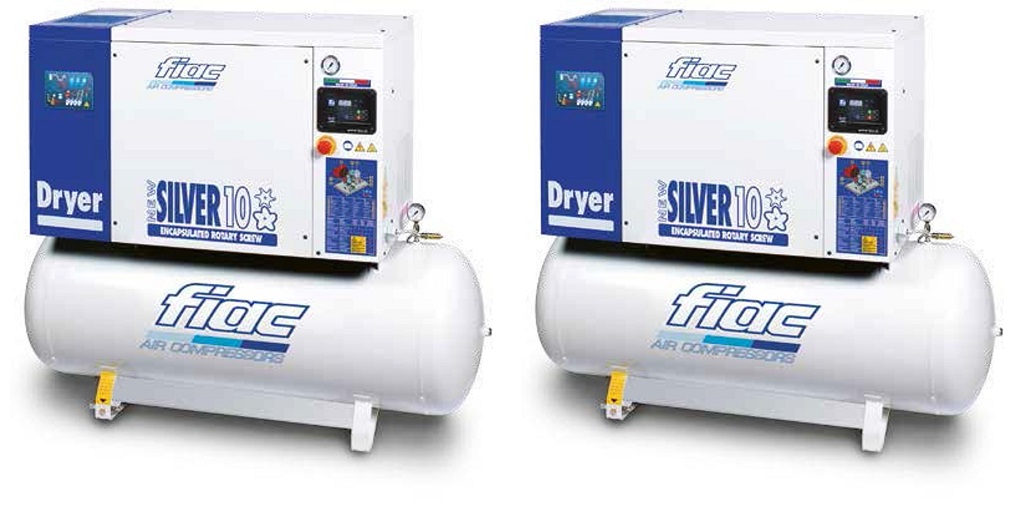A 10 HP air compressor often sits in the middle ground of the compressed air world—not quite the heavy lifter of a 20 HP unit, but far more capable than smaller shop models. So where exactly does it fit? And is 10 HP really enough to support your operation, or are you at risk of undershooting your air needs?
Let’s break down where a 10 HP air compressor proves its worth, which industries benefit most, and how to tell if it truly fits your application.
The Sweet Spot for Mid-Demand Operations
In industrial settings, bigger isn’t always better. Oversizing your system wastes energy, stresses your air treatment components, and costs more up front. Undersizing leads to pressure drops, erratic tool performance, and overworked equipment.
A 10 HP air compressor delivers a solid balance of airflow, pressure, and efficiency. Most rotary screw models in this range offer 35 to 45 CFM at 125 PSI—more than enough to handle simultaneous tool use, moderate duty cycles, and small production lines.
It’s the ideal choice for facilities that:
- Have consistent daily demand, but not high surges
- Operate a mix of air tools or pneumatic machines
- Need reliability without overcommitting to oversized equipment
Where a 10 HP Air Compressor Shines
1. Woodworking Shops
From automated sanders and CNC routers to nailers and paint sprayers, woodworking operations rely heavily on clean, dry, consistent air.
A 10 HP rotary screw unit provides enough volume and pressure for small-to-mid-size shops with 3 to 6 simultaneous air users. It can handle sanding booths, pneumatic clamps, and finish tools without sputtering. Bonus: lower noise output and smaller footprint compared to larger units.
2. Automotive Repair and Body Shops
In the automotive sector, air is used for impact wrenches, lifts, grinders, and spray booths. For shops with up to five bays, a 10 HP air compressor often meets the mark. It supports bodywork tools and light-duty paint operations while staying energy-efficient and low-maintenance.
Of course, larger collision repair centers might push the limits of 10 HP. But for most tire shops, general repair bays, or detailing centers, it does the job without wasting power.
3. Packaging Facilities
Automated packaging lines use pneumatic actuators, cylinders, and control valves for everything from box folding to sealing. These systems need consistent airflow, but often don’t require huge volumes.
That’s where a 10 HP air compressor earns its keep—it delivers stability without overkill. When paired with proper filtration and air dryers, it keeps machines running cleanly and efficiently through multi-shift operations.
4. Textile Production
Textile facilities that rely on air jets, looms, or cutting machines often benefit from a reliable 10 HP air compressor. Especially in small-to-mid scale operations, air demand is steady but manageable. A properly configured 10 HP unit supports production without drawing excess power or taking up valuable floor space.
It’s also easier to maintain in environments where uptime matters, but support teams are lean.
5. CNC Machining
CNC machines require air for tool changes, chip removal, and spindle cooling. A 10 HP compressor provides more than enough for one to three machines running simultaneously, especially in prototyping or low-to-medium volume shops.
With the right air treatment setup, it helps avoid moisture issues that could affect surface finish or tool life. It’s a clean, reliable option that keeps operations running smoothly.
Is 10 HP Really Enough?
That depends entirely on your actual air demand. If your operation has frequent surges, more than 5 simultaneous high-CFM tools, or fluctuating duty cycles, 10 HP might start to feel tight.
But in steady, consistent applications, it performs incredibly well.
Consider these checkpoints:
- Are you constantly hitting pressure drops or hearing the compressor cycle too frequently? You might be pushing beyond 10 HP.
- Is your compressor spending more time idling than working? You might be oversized.
- The goal is to match horsepower to real CFM needs, not assumptions. That’s where smart monitoring or a simple audit comes in handy.
Not every shop needs a giant compressor. Sometimes, 10 HP is just right.
To find the best 10 HP air compressor for your application—one that aligns with your pressure needs, duty cycle, and budget—visit Air & Vacuum Process, Inc. online. Their expert-vetted lineup includes models built for real work, not just spec sheet bragging rights.
For more information about Air Compressor Drain Valve and Compressed Air Dryer System Please visit: Air & Vacuum Process Inc.
